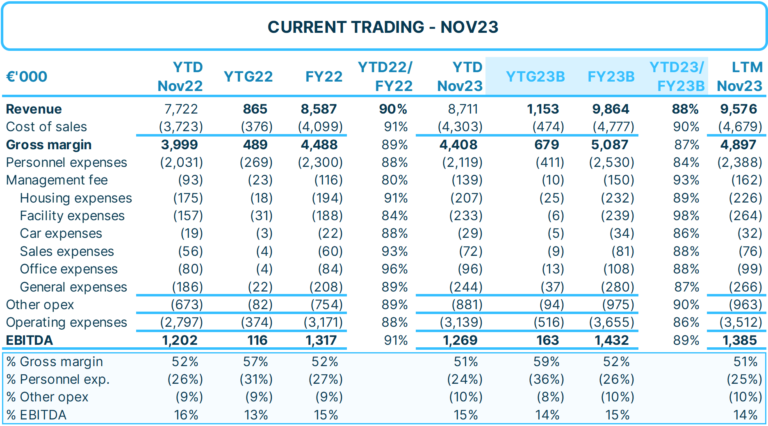Consultants are professionals who offer specialized knowledge and experience to help organizations solve problems, identify opportunities, and improve performance. When companies face complex challenges or opportunities for growth, they often seek the expertise of consultants to guide them. In this article, we will delve deeper into various types of consultants and their specific areas of expertise.
Type of Consultant by Branche
While the term ‘consultant’ is familiar to many, it often remains a mystery what exactly these professionals do during their workday. This is mainly because the profession is enormously broad. Since it is not legally protected, you see the term used within different specializations and sectors. As a result, the work of consultants varies considerably depending on their area of expertise. To provide more clarity on the different types of consultants, we have listed the eight most common types for you.
Want to know more about what it’s like to be a consultant? Read our blog what is a consultant?
IT consultants
The role of IT consultants has become crucial for organizations in today’s digital age. But what does the profession of an IT consultant entail? An IT consultant is an expert in the field of information technology, specializing in providing advice on implementations and support for IT. Within this area of consultancy there is still a wide range of expertise areas such as cybersecurity, cloud computing, software development, and much more.
The tasks of an IT consultant include conducting thorough analyses of IT infrastructure, identifying weaknesses and inefficiencies, and recommending appropriate improvements. This can include implementing new software systems, upgrading network infrastructures, conducting security audits, and providing training and support to employees. IT consultants play an essential role in helping organizations maximize their technological capabilities and remain competitive in a continuously changing landscape.
Financial consultants
A financial consultant is a specialist with expertise in finance and money matters. These professionals play a crucial role in advising individuals, businesses, and organizations on various financial issues, including investments, budgeting, taxes, pensions, and wealth planning. They analyse financial data, evaluate risks, and help clients make informed decisions to achieve their financial goals. For example, individuals may consult financial consultants for assistance in planning their retirement, managing their investments, or creating a financial plan for the future. Entrepreneurs can enlist financial consultants for advice on cash flow management, financing options, and financial strategies to grow their businesses.

Strategic consultants
A strategic consultant is a specialist who helps organizations develop long-term strategies to improve their competitive position and achieve set objectives. They work in virtually every sector, including technology, finance, healthcare, and many others. Based on analyses and market research on trends, competition, opportunities, and threats, these professionals provide valuable advice. They often work closely with the management team to define strategic goals. The tasks of a strategic consultant include conducting SWOT-analyses, identifying growth opportunities, advising on mergers and acquisitions, developing business plans, and evaluating the implementation of strategic initiatives. These professionals play an essential role in helping organizations adapt to changing market conditions and remain successful in the long term.
Organizational consultants
Organizational consultants are experts who help organizations improve their efficiency, effectiveness, and overall performance. They act as external advisors providing objective insights and proposing solutions to complex issues. They mainly work on analyzing operational processes, identifying problems, and developing improvement strategies. They often do this in collaboration with management teams, department heads, and other key stakeholders to achieve the best results. After developing improvement strategies, organizational consultants often assist in their implementation and provide follow-up support to ensure that the proposed changes are effectively implemented and yield the desired results.
HR Consultant
An HR Consultant is a professional advisor in the field of human resources management. They provide specialized advice and support to organizations regarding their personnel. Among other things, they are involved in developing and implementing HR strategies, optimizing recruitment and selection processes, drafting employment conditions, and providing training and development to employees. The goal is usually to help organizations effectively manage their workforce, maximize employee engagement, and create a positive work culture.
Operational consultants
Operational consultants are experts in optimizing business processes and increasing operational efficiency. They analyze existing workflows, identify inefficiencies, and develop strategies to improve them. They then develop improvement plans tailored to the specific needs of the company based on their findings and expertise. These plans can range from implementing new technologies to redesigning workflows and training staff. Whether it’s production processes, supply chain management, inventory management, or customer service, operational consultants are there to improve a company’s functionality and performance. They provide valuable advice and support to business owners, managers, and operational teams to help them achieve their goals and strengthen their competitive position. Operational consultants are often hired for optimized processes, lower costs, improved quality, and greater customer satisfaction.
Management consultant/ business consultant
Management consultants, also known as business consultants, are professionals with expertise in business management and strategy. These consultants are hired by organizations to provide advice and guidance on improving efficiency, developing growth strategies, and addressing specific business challenges. They help organizations analyze their current operations and identify areas for improvement. They conduct thorough analyses, prepare reports, and then provide recommendations for changes and improvements. These recommendations may relate to various aspects of the business, such as strategy, finances, operational processes, technology, and personnel management.
Management consulting is more like an umbrella term for services that fall under strategy consulting, operational consulting, and HR consulting. A significant portion of all consultants fall under this name. However, there are indeed small differences between a management consultant and, for example, a strategy consultant. While management consultants are typically actively involved in the implementation and execution of projects, this is less often the case with strategic consultants. This is often because of the size of the companies they deal with. In an SME context, management consultants often take on both advisory and operational tasks, while strategic consultants typically work for larger enterprises.
Accountancy consultant
An accountancy consultant is a specialized professional who provides advice in the areas of accounting, taxes, auditing, and financial reporting. In their role, they work to achieve accurate financial statements and compliance with regulations. Typical tasks of an accountancy consultant include reviewing financial processes, identifying tax optimization opportunities, conducting audits, and preparing financial statements. With extensive knowledge of accounting standards and tax legislation, accountancy consultants can provide valuable advice to minimize financial risks and maximize growth opportunities.

Business Insight consultant
Now, the main question, what is a consultant at Business Insight? As a consultant at Business Insight, you work with raw data streams and translate them into clear analyses that our clients can truly benefit from. Additionally, you often serve as a sounding board for both colleagues and external clients. The typical process for a project involving a Business Insight consultant begins with mapping out the available data streams of the client. Then, you discuss the possibilities and needs with your client. Afterwards, you can truly dive into the data and transform numbers into dashboards that genuinely deliver added value to the client and create real impact!
Hopefully, you now have an answer to your question “What is a consultant?” Just a brief recap, consultants are specialized advisors who provide expert advice to businesses and individuals across various disciplines. From marketing to IT and everything in between, consultants play an essential role in various sectors worldwide. Whether you’re interested in pursuing a career as a consultant or simply curious about their role, hopefully, you now have a better understanding of what a consultant does.
Are you also excited about the prospect of a career as a consultant after reading this blog? Take a look at our website sincerius.nl/werken-bij for open positions or keep an eye on our LinkedIn for new opportunities!
